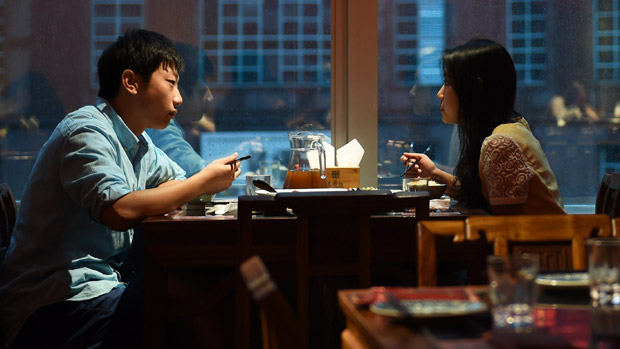China considers paying couples to have second child
Financial burden of raising two children hinders Beijing's plans to reverse effects of one-child policy

A free daily email with the biggest news stories of the day – and the best features from TheWeek.com
You are now subscribed
Your newsletter sign-up was successful
China is considering financial rewards for couples to have a second baby after nearly four decades of its one-child policy.
However, the increase of 1.3 million births has fallen short of projections that up to three million extra babies would be born every year for the next five years, reports the Daily Telegraph.
Officials have already considered reforms including building nurseries at workplaces and extending maternity leave. However, research has shown that the financial burden of a second child is the top reason for parents not extending their families.
The Week
Escape your echo chamber. Get the facts behind the news, plus analysis from multiple perspectives.

Sign up for The Week's Free Newsletters
From our morning news briefing to a weekly Good News Newsletter, get the best of The Week delivered directly to your inbox.
From our morning news briefing to a weekly Good News Newsletter, get the best of The Week delivered directly to your inbox.
Wang Pei'an, vice-minister of the National Health and Family Planning Commission, said: "To have a second child is the right of each family in China, but affordability has become a bottleneck that undermines the decision."
He also said "birth rewards and subsidies" would be considered for the first time, reports the China Daily.
However, critics say limited public resources mean such a move would be damaging. Professor Yuan Xin, of Nankai University in Tianjin, said: "It's not the right time to introduce any financial incentive plans."
Japan has already introduced a raft of incentives to try an increase the birth rate, including cash subsidies, prolonged maternity leave, tax discounts and child and healthcare benefits.
A free daily email with the biggest news stories of the day – and the best features from TheWeek.com
-
 Labor secretary’s husband barred amid assault probe
Labor secretary’s husband barred amid assault probeSpeed Read Shawn DeRemer, the husband of Labor Secretary Lori Chavez-DeRemer, has been accused of sexual assault
-
 Trump touts pledges at 1st Board of Peace meeting
Trump touts pledges at 1st Board of Peace meetingSpeed Read At the inaugural meeting, the president announced nine countries have agreed to pledge a combined $7 billion for a Gaza relief package
-
 Britain’s ex-Prince Andrew arrested over Epstein ties
Britain’s ex-Prince Andrew arrested over Epstein tiesSpeed Read The younger brother of King Charles III has not yet been charged
-
 Epstein files topple law CEO, roil UK government
Epstein files topple law CEO, roil UK governmentSpeed Read Peter Mandelson, Britain’s former ambassador to the US, is caught up in the scandal
-
 Iran and US prepare to meet after skirmishes
Iran and US prepare to meet after skirmishesSpeed Read The incident comes amid heightened tensions in the Middle East
-
 Israel retrieves final hostage’s body from Gaza
Israel retrieves final hostage’s body from GazaSpeed Read The 24-year-old police officer was killed during the initial Hamas attack
-
 China’s Xi targets top general in growing purge
China’s Xi targets top general in growing purgeSpeed Read Zhang Youxia is being investigated over ‘grave violations’ of the law
-
 Panama and Canada are negotiating over a crucial copper mine
Panama and Canada are negotiating over a crucial copper mineIn the Spotlight Panama is set to make a final decision on the mine this summer
-
 Why Greenland’s natural resources are nearly impossible to mine
Why Greenland’s natural resources are nearly impossible to mineThe Explainer The country’s natural landscape makes the task extremely difficult
-
 Iran cuts internet as protests escalate
Iran cuts internet as protests escalateSpeed Reada Government buildings across the country have been set on fire
-
 US nabs ‘shadow’ tanker claimed by Russia
US nabs ‘shadow’ tanker claimed by RussiaSpeed Read The ship was one of two vessels seized by the US military